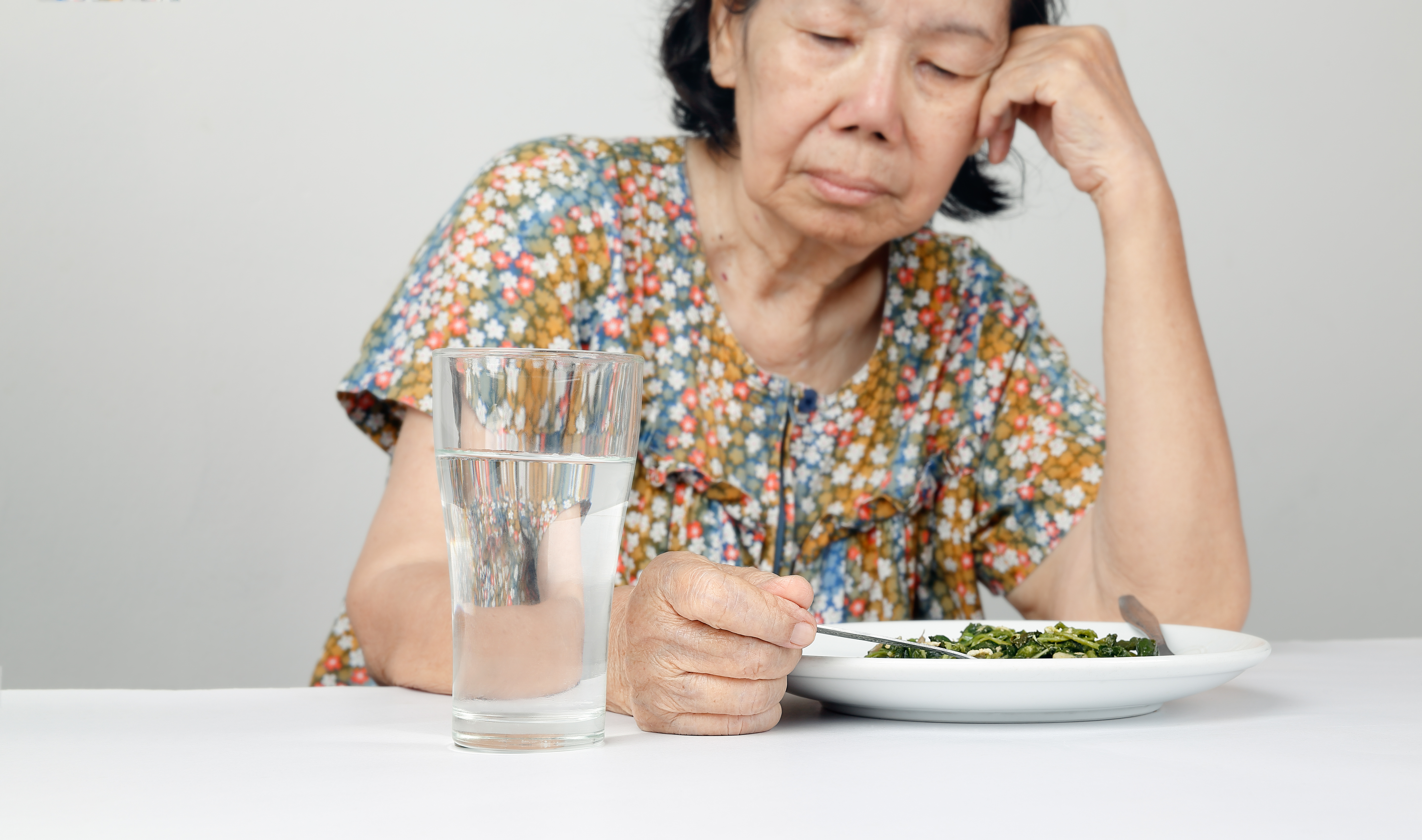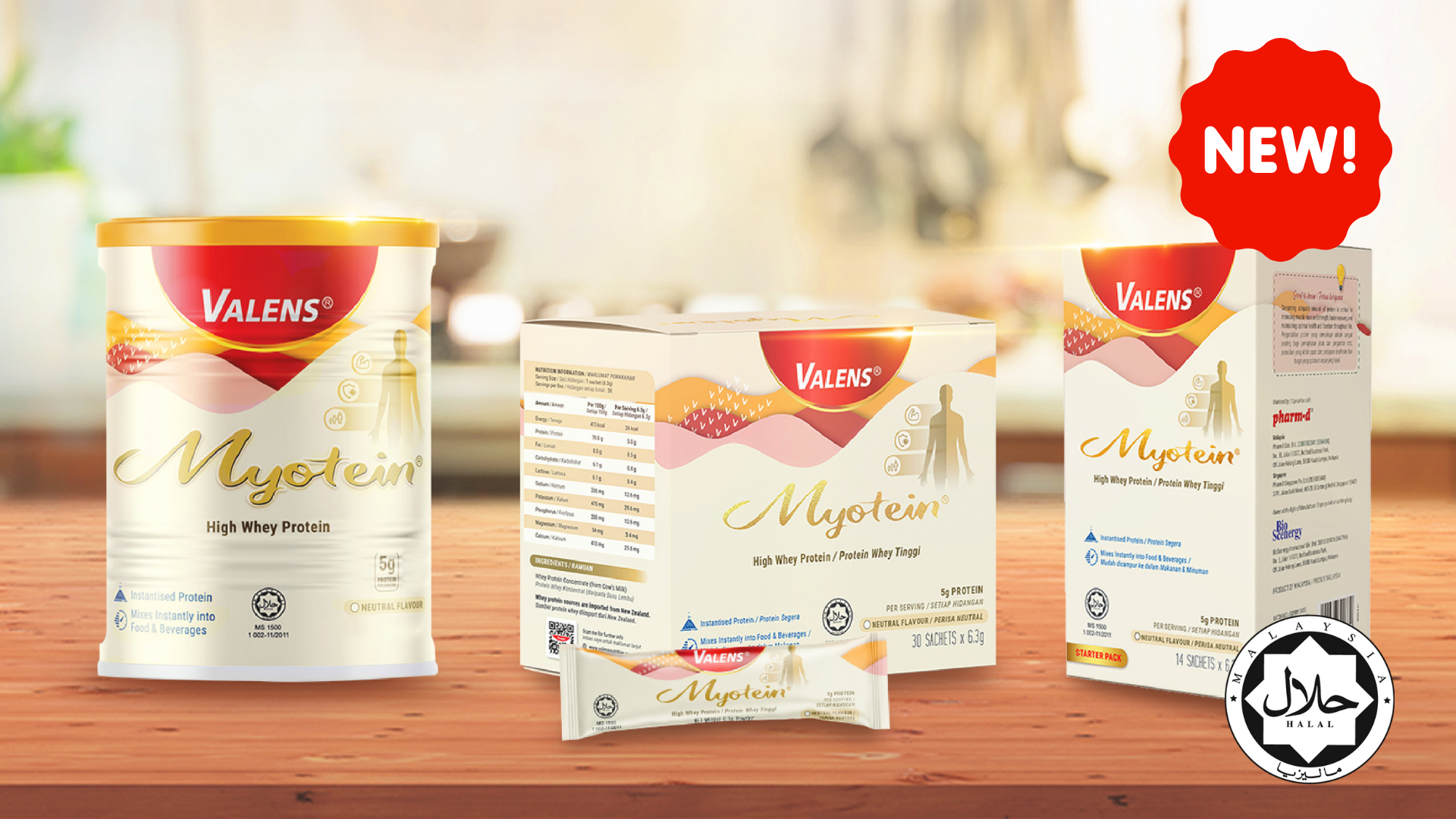As we age, protein can be one of the most important nutrients we cannot miss but often taken for granted. This is because when it comes to protein, many would usually relate it first with bodybuilding, fitness and workouts, rather relating it first as an important nutrient we need like Vitamin C or Calcium.
But when it comes to aging, especially when you are 50 and above, protein is an important daily nutrient to be taken sufficiently, in order to maintain a certain quality of life. This is because, by consuming enough protein in your diet, you will be able to slow down the progress of Sarcopenia, an involuntary loss of skeletal muscle mass and strength due to aging (1).
Muscle mass and strength are very important to upkeep our everyday activities and chores. For example, an activity as simple as walking, uses about 200 muscles for each step we take. While it does not always pose an immediate or apparent problem at first, losing muscle mass and strength gradually as we age may increase the risk of falls, bone fractures and eventually immobility, which would greatly affect our quality of life.
Aside from its prominent role in building and maintaining muscle mass and strength, protein is also crucial for many of our bodily functions. Commonly known as the “Building Blocks of Life” for healing and recovery, protein’s amino acids are constantly required to renew and repair our body cells and tissues, regulate various metabolic functions in our body, as well as supporting our immune system by creating white blood cells, antibodies and antioxidants (2).
Lack of protein, aside from muscle loss, also poses other problems such as fatigue, weakness, thinning hair, brittle nails, dry skin and frequent infections.
So, how much protein do senior adults need?
The amount of protein intake varies depending on an individual’s age, weight, gender, health status and level of physical activities.
As a general guideline, however, according to MRNI (Recommended Nutrient Intake of Malaysia), a healthy adult should ideally get 1 gram of protein for every kilogram of his or her body weight each day.
This means if you weigh 55 kg, you should be getting 55 grams of protein every day. And if your daily routine often involves strenuous physical activities, you may require more protein.
Senior adults, however, would require a slightly higher daily protein intake to fight against chronic muscle loss, that ranges around 1.0 to 1.2g per kg bodyweight (3).
Quality of protein
We can get proteins from several food sources such as eggs, dairy, poultry, fish, seafood, beef are good animal proteins. Vegetarians and vegans can also acquire plant-based proteins from tofu, tempeh, avocado, mushroom, chickpeas, edamame beans, various lentils and so on.
However, protein sources are also categorised into two categories: complete and incomplete protein. Complete proteins are proteins that consist of all essential amino acids our body requires, whereas incomplete proteins do not consists of all amino acids, which thus require consuming various protein sources to acquire other amino acids.
Animal proteins like dairy, eggs and meat are complete proteins, while incomplete proteins are usually plant-based food such as vegetables, lentils, beans and grains. Vegans and vegetarians therefore are advised to consume different food proteins to get all amino acids.
However, as we age, some may also face eating difficulties such as chewing or swallowing issues, dentures, lack of appetite and so on, which makes it difficult for seniors to consume enough proteins at times.

This is where high-quality protein supplements like Myotein High Whey Protein can come in handy.
Myotein High Whey Protein is a product from Valens Nutrition, a range of medical nutrition products which has been widely used by healthcare professionals and institutions in Asia for over 15 years.

Imported from New Zealand, Myotein High Whey Protein is a bioactive whey protein concentrate freshly derived from cow’s milk. It is 100% whey protein concentrate, free from flavouring, preservatives, added sugar or carbs. Whey protein is also a good source of complete protein, and suitable for vegetarians.
Bioactive whey protein is naturally rich with bioactive properties (4), such as Immunoglobulins and Lactoferrin, which help to improve the immune system. These are some immune system powerhouses found in whey protein,
Immunoglobulins: supports the immune system
Lactoferrin: antiviral, antibacterial, antioxidant and antifungal Lactoperoxidase: inhibits growth of bacteria
Proteose peptone: enhances antibody production
Beta-Lactoglobulin: regulates lymphatic response
Alpha-Lactalbumin: enhances antibody response
Designed to complement your daily diet, Myotein is also free from flavouring. This means it can be added into almost any kind of beverages of choice such as coffee, tea, cocoa, milk, smoothies, oats, cereals and so on without altering the taste.

For senior adults who consume nutritional drinks or meal replacement drinks, adding a protein supplement powder like Myotein into it can also help to increase protein intake, yet keeping it lean and low in calories. Senior adults who require more protein can easily supplement their diet with Myotein without altering the texture or taste of food.
Myotein is currently available at most community pharmacies near you.
For more information on Myotein High Whey Protein, visit their website here: https://myotein.valensnutrition.com/
This article is written by Ms Fu Yen, a practising dietitian of MDA (Malaysia Dietitian Association) for Valens Nutrition.
Do the Muscle Strength test at any Alpro Pharmacy outlet and get a Free* MYOTEIN®️ sample pack! (From 1 July to 31 Aug 2024) For more info click, HERE.
*Terms and conditions apply.
References
Manal A. Naseeb, Stella L. Volpe. Nutrition Research 2017, Vol 40, 1-20. Protein and exercise in the prevention of sarcopenia and aging. ISSN 0271-5317. https://doi.org/10.1016/j.nutres.2017.01.001.
Guoyao Wu. Food Funct 2016, Vol 16. Dietary protein intake and human health. DOI https://doi.org/10.1039/C5FO01530H
Baum, J. I., Kim, I. Y., & Wolfe, R. R. Nutrients 2016, 8(6), 359 Protein Consumption and the Elderly: What Is the Optimal Level of Intake? https://doi.org/10.3390/nu8060359
Geoffrey al. JACN 2007 Vol 26, No.6. Emerging Health Properties of Whey Protein and their Clinical Implications.
This content is provided by Pharm-D

